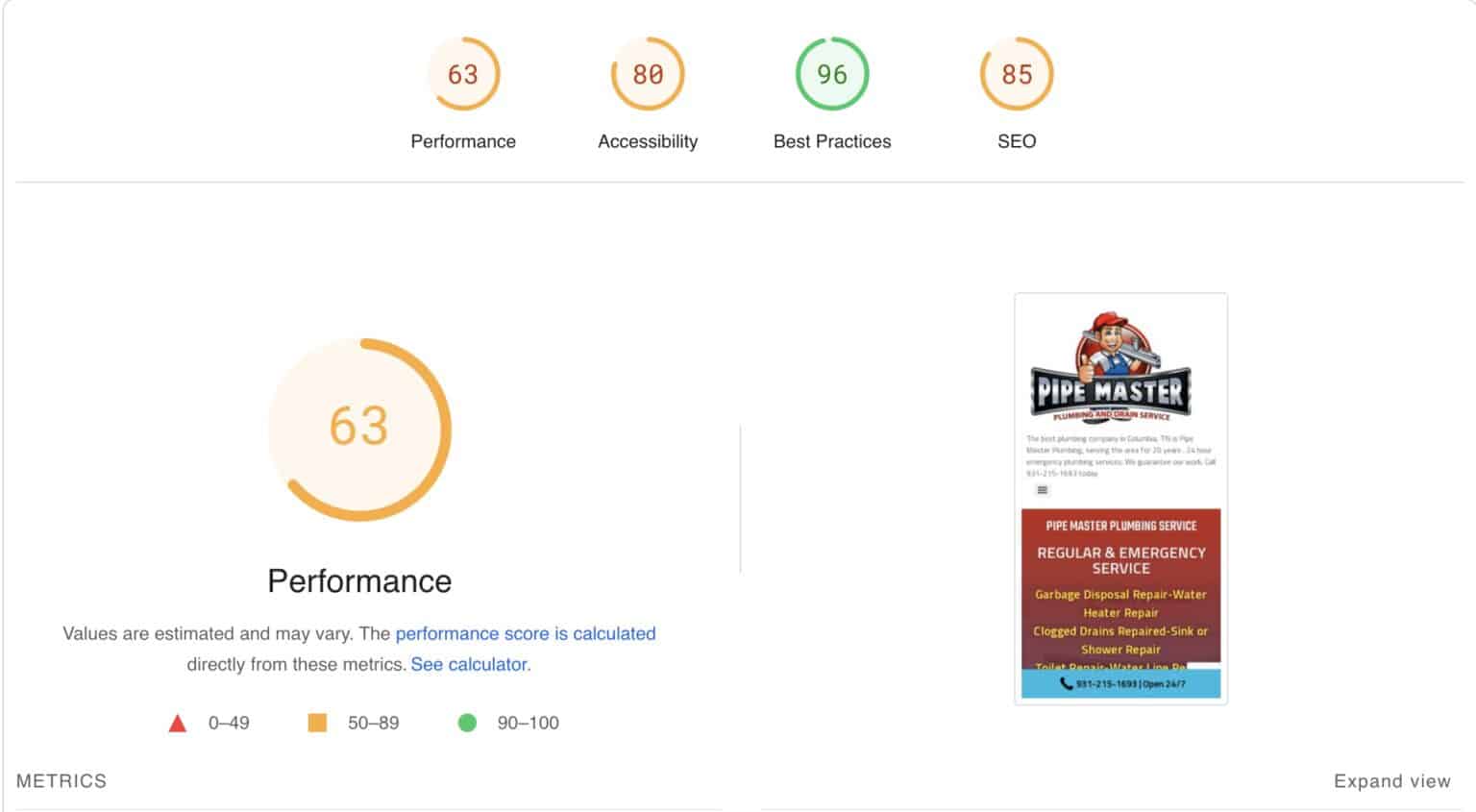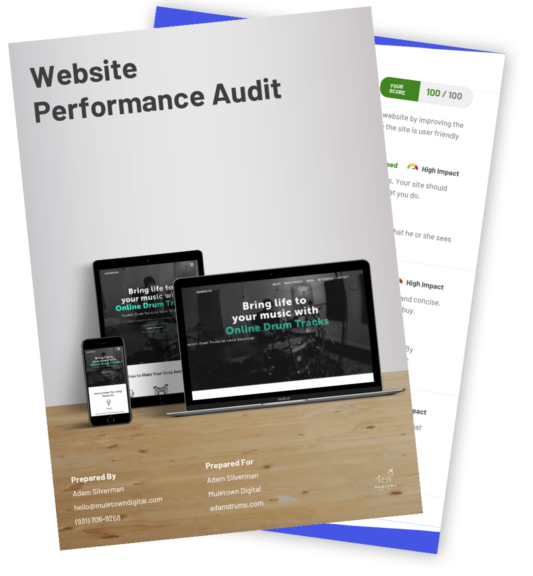Website Maintenance 101: Don’t Ignore These 5 Essentials
Hey there! I’m Adam Silverman with Muletown Digital, and today I’m going to let you in on a little secret: SEO isn’t just for the big dogs. Small businesses can absolutely benefit from search engine optimization—if you do it right. So, let’s dive into five essential tips for SEO that’ll help your business rank higher, drive traffic, and hopefully bring in some more leads and sales.
Understanding Small Business SEO
Alright, let’s start with the basics. Small business SEO is all about making your website and online presence more visible to people who are searching for what you offer. Think of it as a way to make sure your business shows up when someone types a relevant query into Google or other search engines.
SEO for small businesses involves understanding how search engines work, what your potential customers are searching for, and the specific keywords and phrases they use. By optimizing your site with these keywords, you’re essentially telling search engines, “Hey, this is what my business is about!” This is crucial for small businesses because it levels the playing field, allowing you to compete with larger companies and reach your target audience more effectively.
Benefits of SEO for Small Business
So, why should you care about SEO? Let’s break down the benefits:
- Increased Online Visibility: By optimizing your website, you can climb higher in search engine results pages (SERPs), making it easier for potential customers to find you. More visibility means more opportunities to attract and engage with your audience.
- Improved Website Traffic: SEO drives more organic traffic to your site. This isn’t just any traffic—it’s targeted traffic from people actively searching for what you offer. More visitors can lead to more leads, sales, and ultimately, revenue.
- Cost-Effective Marketing: Unlike paid advertising, SEO is a long-term investment. Once you’ve optimized your site, you can continue to reap the benefits without ongoing costs. It’s a cost-effective way to maintain a steady stream of traffic.
- Competitive Advantage: By optimizing your online presence, you can stand out from your competitors. A well-optimized site can position you as an industry leader, even if you’re a smaller player in the market.
- Increased Conversions: SEO doesn’t just bring more traffic; it brings the right traffic. By targeting specific keywords, you attract visitors who are more likely to convert into customers, improving your overall conversion rates.

1. Make Sure Your Website is Mobile-Friendly
You’d think by 2024, every business would have a mobile-friendly website, right? Wrong! We still see so many business websites that either load like molasses on mobile or don’t display properly at all.
Here’s the deal: more than half of all web traffic comes from mobile devices. If your website takes 10 seconds to load or makes users scroll endlessly just to figure out what you do, guess what? They’re leaving. Quickly.
Google has this nifty thing called mobile-first indexing, which means they prioritize how your website performs on mobile when determining your rankings. So, if your mobile site is slow or clunky, it’s a huge SEO no-no.
Mobile optimization is also crucial for local search results, as consumers increasingly rely on their phones to find local businesses.
🔧 Action Step: Test your site on mobile and make sure it’s optimized. If it takes longer than 3 seconds to load, or if users can’t figure out what you do right away, it’s time for a refresh. Your customers—and Google—will thank you.

2. Focus on Local SEO
If you’re a local business, you’re going to want to pay attention to this one. Local SEO is your best friend. For small business owners, whether you’re a contractor in Franklin, Tennessee, or a coffee shop in Columbia, getting found locally is what’s going to drive foot traffic (and online traffic).
So, what’s the key to local SEO? Citations. And no, I’m not talking about getting a speeding ticket. Citations in SEO are listings—places like your Google Business ProfileYelp, Facebook, and Better Business Bureau where your business name, address, and phone number are consistent. These citations give Google the signals it needs to boost your local ranking.
🔧 Action Step: Make sure your business is listed across as many local directories as possible, and keep those listings consistent. If you moved offices or changed phone numbers, go update everything ASAP!

3. Use the Right Keywords
If I had a dollar for every time a business came to us asking why they’re not getting traffic, and we find out they’re not even using the right keywords on their website… well, I’d probably own a few more mules by now.
Here’s a real-world example: Imagine you’re a general contractor in Nashville. If the words “general contractor in Nashville” don’t appear on your website, how is Google supposed to know what you do and where you do it? Spoiler alert: they won’t.
Meta descriptions are essential on-page elements for SEO optimization. While they do not directly impact search engine rankings, unique and compelling meta descriptions can enhance user engagement and click-through rates. Best practices for crafting effective meta descriptions include summarizing webpage content and incorporating relevant keywords.
🔧 Action Step: Do some basic keyword research (use tools like Google Keyword Planner) and make sure your site is using the words people are searching for. And don’t just plaster them all over your homepage—use them naturally throughout your site.

4. Create Regular, High-Quality Content
This one’s a biggie. Content is still king, folks, and producing fresh, relevant content on a regular basis is one of the best things you can do for your search engine optimization (SEO). High-quality content is crucial for improving search rankings, increasing online traffic, and driving customer engagement. But let me be clear: don’t just have ChatGPT write your blogs for you. Sure, AI can help, but it’s no substitute for authentic, helpful content that speaks directly to your audience.
Think about what your customers care about and what problems they’re trying to solve. Then create content that addresses those needs. It could be blog posts, videos, or even landing pages that dive deeper into specific services. The more you produce valuable content, the more likely you’ll be seen as an authority in your field.
🔧 Action Step: Set up a content calendar and aim to post new content at least twice a month. If writing isn’t your thing, consider hiring someone to do it for you—but make sure the content is high-quality and useful.

5. Optimize Your Website Speed
Okay, I get it—this one sounds super technical, but hear me out. Website speed matters, and it matters a lot. If your site takes more than 5 seconds to load, users are going to bounce quicker than you can say “SEO.”
A slow website doesn’t just frustrate users—it can also hurt your SEO rankings. Google factors in user experience metrics like bounce rate (how quickly people leave your site) and if your site is slow, users will bounce, and Google will take note.
🔧 Action Step: Use tools like Google PageSpeed Insights to test your website speed. If it’s taking too long to load, start by optimizing images, enabling browser caching, and minimizing any unnecessary code. And if you need help with that, you know who to call. 😉
Building Your Online Presence
Building a strong online presence is essential for small businesses in today’s digital world. Here’s how you can do it:
- Claim and Optimize Your Google Business Profile: This is a must for local SEO. Your Google Business Profile helps you manage how your business appears on Google Search and Maps. Make sure all your information is accurate and up-to-date.
- Create High-Quality Content: Content is king, remember? Regularly publishing relevant, informative content helps establish your business as an authority in your field. It also attracts more visitors to your site, boosting your SEO efforts.
- Build a Mobile-Friendly Website: With more people browsing on their phones, having a mobile-friendly site is non-negotiable. A responsive design ensures a good user experience, which can improve your online visibility.
- Use Social Media: Social media platforms are powerful tools for building your online presence. They allow you to engage with your audience, share content, and drive traffic to your website. Be active and consistent on the platforms where your audience hangs out.
- Monitor and Respond to Online Reviews: Online reviews can make or break your reputation. Regularly check and respond to reviews on platforms like Google, Yelp, and Facebook. Positive reviews build trust and credibility, while addressing negative feedback shows you care about your customers.
By understanding small business SEO, leveraging its benefits, and building a robust online presence, you can significantly improve your online visibility, drive more traffic, and increase conversions. Remember, SEO is a marathon, not a sprint, but the long-term rewards are well worth the effort.
Bonus Tip: Track Your Traffic!
I can’t tell you how many times we’ve had clients come to us and say, “I have no idea if my website is getting traffic.” Don’t be that business.
If you don’t have Google Analytics or Google Search Console set up on your website, it’s like throwing a party and not knowing if anyone showed up. These tools let you see where your traffic is coming from, how users are interacting with your site, and what pages are driving conversions. And if you don’t know those things, how can you improve?
🔧 Action Step: Make sure Google Analytics and Search Console are installed on your site. If you’re not sure how to do it, give us a call—we can help you set everything up and even give you a walkthrough of what to look for.

Ready to Take Your SEO to the Next Level?
These five tips are a great starting point, but they’re just the beginning. SEO is an ongoing process, and it takes time and effort to see results. If you’re looking for a partner to help you with your website and digital marketing efforts, Muletown Digital is here for you
Let’s do a free website and SEO audit and figure out where you stand today. Just head over to MuletownDigital.com/connect, and we’ll set you up with a free consultation.
Thanks for reading, and don’t forget—faster sites, better keywords, and high-quality content are the keys to unlocking your SEO success!
Are you drowning in the wake of a bad website?
Your business deserves a website that does what you need it to do... and maybe even a little more. Don't stay stuck with a website that's not working for your business. Get in touch with our team and get unstuck now!
Other Helpful Digital Marketing Insights
© Copyright 2025 Muletown Digital, LLC. All Rights Reserved.

